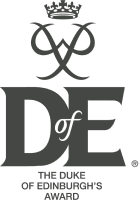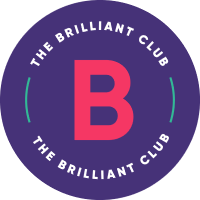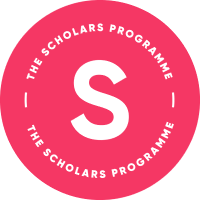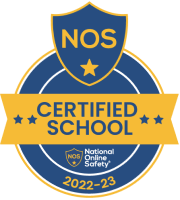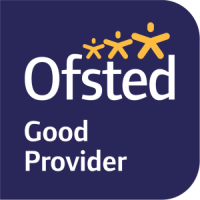This subject is part of the Faculty of Languages and Communication.
Our Head of Faculty is:
Ms H. Eames – heames@tcat.school
Our subject teachers and email addresses are:
Ms V Lozano - vlozano@tcat.school
Ms T Pearce - tpearce@tcat.school
Our subject intent
Is to develop a love of languages among our students and help them to realise language learning can lead to a variety of careers and opportunities all over the world. As well as broadening pupils’ horizons, learning a foreign language gives pupils an opportunity to communicate with confidence as well as providing an opening to other cultures. At QE, our MFL curriculum aims to foster pupils’ curiosity and deepen their understanding of the world, as well as being challenging and inclusive.
Curriculum Subject Offer
Year 7 Spanish
Subject intent
In Year 7, you will study a variety of different topics while learning the basics of a foreign language potentially for the first time. You begin with My Life, moving through My Free Time, My School, My Family and Friends to My City. Throughout all these topics, you will learn the foundations of a language, namely verbs, tenses and vocabulary choices.
Topic Breakdown
|
|
Half term 1 |
Half term 2 |
|
Autumn |
Mi vida (My life) | Mi insti (My school) |
|
Spring |
Mi tiempo libre (My free time) | Mi familia y mis amigos (My family and friends) |
|
Summer |
Mi ciudad (My city) | Repaso (Revision) |
You will be assessed at the end of each topic with an assessment linked to the skills you’ve been developing each half term. These will be either a reading, writing, speaking or listening assessment, based on the focus of each topic.
Spanish full Scheme of Work - Year 7
Year 8 Spanish
Subject intent
In Year 7, you studied a variety of different topics while learning the basics of a foreign language potentially for the first time. You began with My Life, moving through My Free Time, My School, My Family and Friends to My City. Throughout all these topics, you learned the foundations of a language, namely verbs, tenses and vocabulary choices.
At the start of Year 8, you build on the previous learning for Year 7 such as starting with a topic called All About My Life. New topics that you will cover are: My Holidays, Food, What Shall We Do?, and Operation Summer. In each of these, you look deeper at verbs, vocabulary choices such as comparatives and superlatives, and imperatives.
Topic Breakdown
|
|
Half term 1 |
Half term 2 |
|
Autumn |
Mis vacaciones (My holidays) | Todo sobre mi vida (All about my life) |
|
Spring |
¡A comer! (Let’s eat!) | ¿Qué hacemos? (What shall we do?) |
|
Summer |
Operación Verano (operation summer) | Repaso (Revision) |
You will be assessed at the end of each topic with an assessment linked to the skills you’ve been developing each half term. These will be either a reading, writing, speaking or listening assessment, based on the focus of each topic.
Spanish full Scheme of Work - Year 8
Year 9 Spanish
Subject intent
At the start of Year 8, you built on the previous learning for Year 7 such as beginning with a topic called All About My Life. Other topics you covered are: My Holidays, Food, What Shall We Do?, and Operation Summer. In each of these, you looked deeper at verbs, vocabulary choices such as comparatives and superlatives, and imperatives.
Topics for Year 9 include: We Are Like This, Orientation, In Good Shape, Young People in Action and An Adventure in Madrid. You will be learning about the various verb tenses and expanding your vocabulary. Towards the end of Year 9, you will decide whether to continue your Spanish studies as an option. A reason to choose to continue to study Spanish is that a modern foreign language is often a requirement to be able to continue your education at university. If you select Spanish as an option you will start the GCSE course in the final half term of Year 9.
Topic Breakdown
|
|
Half term 1 |
Half term 2 |
|
Autumn |
Somos así (We are like this) | ¡Oriéntate! (Orientation!) |
|
Spring |
En forma (in Good shape) | Jóvenes en acción (Young people in action) |
|
Summer |
Una aventura en Madrid (an adventure in Madrid) | Repaso (revision) |
You will be assessed at the end of each topic with an assessment linked to the skills you’ve been developing each half term. These will be either a reading, writing, speaking or listening assessment, based on the focus of each topic.
Spanish full Scheme of Work - Year 9
Year 10 Spanish
Subject intent
Topics for Year 9 include: We Are Like This, Orientation, In Good Shape, Young People in Action and An Adventure in Madrid. You will be learning about the various verb tenses and expanding your vocabulary. Towards the end of Year 9, you will decide whether to continue your Spanish studies as an option. A reason to choose to continue to study Spanish is that a modern foreign language is often a requirement to be able to continue your education at university.
As you start your GCSE course in Year 10, the AQA GCSE Spanish course again features a range of different topics, building on the groundwork from the last three years of lessons. People and lifestyles and Poplar culture are the titles of the themes covered, and all elements of the course will be practised in detail: Reading, Writing, Speaking and Listening.
Topic Breakdown
|
Half term 1 |
Half term 2 |
|
|
Autumn |
Identity and relationships with others | Healthy living and lifestyles |
|
Spring |
Education and work | Free time activities |
|
Summer |
Customs, festivals and celebrations | Revision and Mock exams |
You will be assessed at the end of each topic with an assessment linked to the skills you’ve been developing each half term. These will be either a reading, writing, speaking or listening assessment, based on the focus of each topic.
Spanish full Scheme of Work - Year 10
Year 11 Spanish
Subject intent
In Year 10, the AQA GCSE Spanish course again featured a range of different topics, building on the groundwork from the last three years of lessons. People and lifestyles and Poplar culture were the titles of the themes covered, and all elements of the course were practised in detail: Reading, Writing, Speaking and Listening.
In Year 11, you should be confident to use a range of different tenses, have a broad vocabulary and be able to converse confidently in Spanish during lessons. The remainder of Popular culture and Communication and the world around us, are the themes covered.
Topic Breakdown
|
|
Half term 1 |
Half term 2 |
|
Autumn |
Celebrity culture | Travel and tourism, including places of interest |
|
Spring |
Media and technology | The environment and where people live |
|
Summer |
Repaso (Revision) | Repaso (revision) |
You will be assessed at the end of each topic with an assessment linked to the skills you’ve been developing each half term. These will be either a reading, writing, speaking or listening assessment, based on the focus of each topic.
Spanish full Scheme of Work - Year 11
Within each subject we have our own specific personalised marking and feeback policy.
|
English and Communications Faculty |
||
|
|
KS3 |
KS4 |
|
Verbal dialogue |
Teachers circulate with purpose, checking pupils’ work, marking if appropriate and collecting information on whole-class strengths, errors, misconceptions, knowledge gaps etc. The teacher adjusts their lesson accordingly. |
Teachers circulate with purpose, checking pupils’ work, marking if appropriate and collecting information on whole-class strengths, errors, misconceptions, knowledge gaps etc. The teacher adjusts their lesson accordingly. |
|
Self/peer assessment |
Written feedback through strengths/targets and annotations. Peer and self-assessment should be completed in blue pen. |
Written feedback through strengths/targets and annotations. Peer and self-assessment should be completed in blue pen. |
|
Whole Class Feedback |
When pupils complete extended pieces of writing, teachers will read through a sample of books from each class they teach and note pupils’ strengths and areas for development. Teachers will then use this information to provide whole class feedback on what pupils are doing well and how pupils can improve their work further. As this type of marking involves the teacher looking at a sample of books, the teacher will use a rotation system to ensure that the books of all pupils are looked at on a regular basis. |
When pupils complete extended pieces of writing, teachers will read through a sample of books from each class they teach and note pupils’ strengths and areas for development. Teachers will then use this information to provide whole class feedback on what pupils are doing well and how pupils can improve their work further. As this type of marking involves the teacher looking at a sample of books, the teacher will use a rotation system to ensure that the books of all pupils are looked at on a regular basis. |
|
Written comments |
Teachers within the department will either: For ENGLISH - 1. Read through the work of all pupils and use a marking code to indicate the strengths of the work and the areas for development. The marking code will be shared with all pupils and pupils will be given precise instruction about how to improve their work. OR MFL - 2. Read through the work of all pupils and write a strength comment and target comment at the end of the piece of work. SPAG Teachers will identify where pupils make errors in their spelling, punctuation and grammar in any two paragraphs of the teacher’s choice, and pupils will be given time in lessons to make corrections (by circling errors where SPAG mistakes appear). If several pupils in a class are making the same spelling, punctuation or grammar error then the teacher will address this with the class. |
Teachers within the department will either: 1. Read through the work of all pupils and use a marking code to indicate the strengths of the work and the areas for development. The marking code will be shared with all pupils and pupils will be given precise instruction about how to improve their work. OR 2. Read through the work of all pupils and write a strength comment and target comment at the end of the piece of work. SPAG Teachers will identify where pupils make errors in their spelling, punctuation and grammar and pupils will be given time in lessons to make corrections (by circling errors where SPAG mistakes appear). If several pupils in a class are making the same spelling, punctuation or grammar error then the teacher will address this with the class. |
|
Frequency of feedback |
Live feedback and responsive teaching will take place in most lessons where pupils have been asked to complete extended pieces of writing. * Whole-class feedback will take place once a week for English and once a fortnight for MFL. Peer/self-assessment When deemed to be the most effective method of assessing work produced in lessons Written comments will take place after between 10 and 15 lessons (around twice per term), as appropriate for the pace of the class. This will be the half-termly assessments. *When studying class readers, there may be several lessons where pupils do not write extensively. Instead lesson time will be used to: read and discuss the text; annotate the text; make notes about the text; complete short comprehension activities and quizzes related to the text. |
Live feedback and responsive teaching will take place in most lessons where pupils have been asked to complete extended pieces of writing. * Whole-class feedback will take place once a week for English and once a fortnight for MFL. Peer/self-assessment When deemed to be the most effective method of assessing work produced in lessons Written comments will take place after between 10 and 15 lessons (around twice per term), as appropriate for the pace of the class. This will be the half-termly assessments. *When studying class readers, there may be several lessons where pupils do not write extensively. Instead lesson time will be used to: read and discuss the text; annotate the text; make notes about the text; complete short comprehension activities and quizzes related to the text. |
|
Response to feedback |
When directed after marking/whole class feedback, pupils will be expected to make a response in blue pen. In some instances, pupils will be expected to put the title DIRT and either re-draft an entire piece of work or a section of the piece of work according to the teacher’s instructions. In other instances, pupils will be expected to apply their feedback to a different task under the title DIRT. This would be done in blue pen. In further instances, pupils may be asked to answer questions posed by the teacher. Responses to spelling mistakes include writing out misspelled words three times and listening to explicit teaching of spelling (etymology etc.). |
When directed after marking/whole class feedback, pupils will be expected to make a response in blue pen. In some instances, pupils will be expected to put the title DIRT and either re-draft an entire piece of work or a section of the piece of work according to the teacher’s instructions. In other instances, pupils will be expected to apply their feedback to a different task under the title DIRT. This would be done in blue pen. In further instances, pupils may be asked to answer questions posed by the teacher. Responses to spelling mistakes include writing out misspelled words three times and listening to explicit teaching of spelling (etymology etc.). |
|
Summative assessment |
1 x formal assessment each half term. A piece of extended writing which is marked using official GCSE mark schemes. Band boundaries are applied to the assessments once judged. |
1 x formal assessment each half term. A piece of extended writing which is marked using official GCSE mark schemes. Band boundaries are applied to the assessments once judged. |
